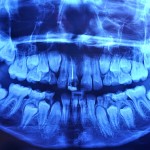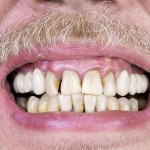
This review of observational studies identified 93 studies and estimates overall prevalence of hypodontia at 6.4% (95%CI; 5.7 to 7.2%) . Prevalence was higher in females and varies across continents.
[read the full story...]
This review of observational studies identified 93 studies and estimates overall prevalence of hypodontia at 6.4% (95%CI; 5.7 to 7.2%) . Prevalence was higher in females and varies across continents.
[read the full story...]
Mark Horowitz summarises the new WHO and UCL Institute of Health Equity (Michael Marmot) report and research paper on social determinants of mental health. He concludes that it’s time to focus on the root causes of mental distress, namely poverty, unemployment, poor education and social isolation.
[read the full story...]
This blog is a review of the global and regional prevalence, disability and overall burden and costs for common musculoskeletal disorders including low back and neck pain, hip and knee osteoarthritis, rheumatoid arthritis, gout and other conditions.
[read the full story...]
The review represents some of the output of the 2010 Global Burden of Disease studies and finds that severe periodontitis is the 6th most prevalent disease affecting about 11% of adults worldwide.The prevalence increases gradually with age with a steep increase between the 3rd and 4th decades.
[read the full story...]
This new study estimates that there are approximately 3 million smokers in the UK with mental illness, and the direct cost of treatment to the NHS in this population was £719 million in 2010. The total smoking-attributable costs for this group are estimated at £2.34 billion.
[read the full story...]
This study explores the prevalence of psychiatric disorder and comorbidity among a UK sample of young people with experience of homelessness. It finds an extremely high prevalence of mental illness, combined with low levels of mental health service use.
[read the full story...]
Who naturally recovers from PTSD and why? A recent meta-regression analysis finds an overall natural remission rate for PTSD of 44%, with no increase in remission after longer observation periods.
[read the full story...]
For many years, psychiatry has highlighted that people with epilepsy appear to have an elevated risk for psychosis. However, studies exploring this relationship (of which there are many) seem to disagree on just what the prevalence of psychosis is in this group. For example, Gudmundsson (1966) interviewed every patient with epilepsy in Iceland and concluded [read the full story…]

Historically, eating disorders have been discussed in a very black and white fashion; either you do or you don’t have one. Whilst this may be beneficial in terms of research and diagnosis, it isn’t particularly helpful for those that sit in the grey area between the two. People in this grey area are often referred [read the full story…]

New research published today in the Lancet shows that up to one in four women prisoners in England and Wales self-harm every year. The largest study of self-harm in prisons also reports that female prisoners are four times more likely to self-harm than male inmates. Previous systematic reviews have investigated self-harm in prisons (Lohner, 2007 and Dixon-Gordon, [read the full story…]